Tuesday Talkies: Mahanadhi - A film that utilises Kamal Haasan’s talents to the fullest
The film, co-written by Haasan, is a poignant tale of an ordinary man who loses all that he holds close to his heart
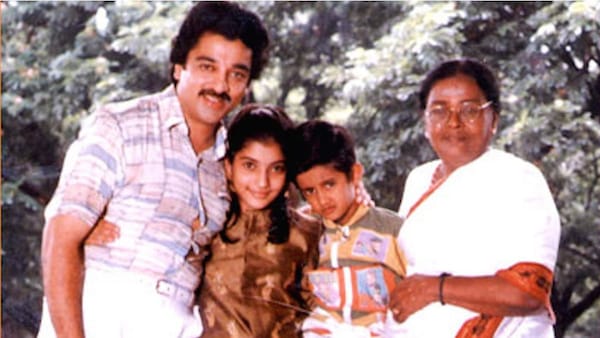
Last Updated: 11.58 PM, Jun 21, 2022
In our new weekly series, Tuesday Talkies, we recommend critically acclaimed and award-winning Indian films.
It is hard to pick a favourite Kamal Haasan movie, especially if you are a huge admirer of his work. Time and again, through his films and the many roles he has essayed in his career spanning six decades, Haasan has proved to be one of the most versatile and experimental superstars in Indian cinema. From portraying the role of an autistic man in the 1986 film Swathi Muthyam and a dreaded gangster in Nayakan (1996), to playing an elderly woman in Avvai Shanmughi (1996), the actor has tried and done it all. And while his latest film Vikram continues to mint money at the box office, we revisit one of his underappreciated works, Mahanadhi (1994).
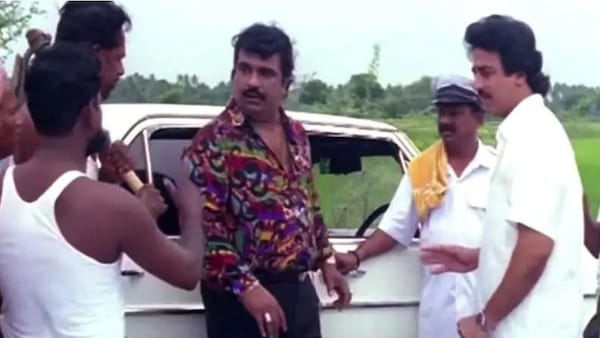
In Mahanadhi, Haasan is Krishnaswamy, a widower living with his mother-in-law and two children, Kaveri and Barani, in a village called Thirunageswaram near Kumbakonam. He is a small-time businessman who is revered and respected among the village folks. But a chance encounter with Dhanush changes his life forever. Krishna, who aspires to lead an affluent lifestyle in the city, invests in Dhanush’s business and starts a chit fund after selling off his property in the village. However, when Dhanush defrauds him and swindles the money, Krishna ends up in jail for a crime he didn’t commit. There, he meets Panjapakesan, who happens to be the father of his would-be bride, Yamuna. While in jail, he faces a great deal of hardships, and by the time he gets out of prison, his mother-in-law had passed away and his children go missing.
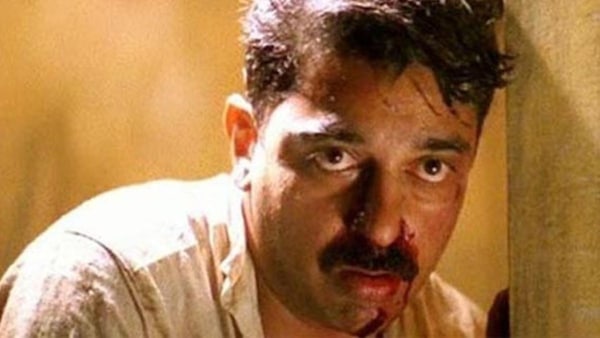
The first half of the film could very well set the stage for a revenge drama. Although Krishna avenges those who wronged him, the film is not merely a revenge story. While he attempts to find his missing children and start life afresh, Krishna questions the relevance of law and justice, the existence of God, and the very values that make us humans. During a conversation with Panjapakesan on the Napier bridge, he inquires about the duration of life imprisonment. When Panjapakesan requests him to not harbour thoughts of vengeance and be patient, Krishna asks whether patience would clean up the dirty and stinking river, equating the river with society. In another scene, Krishna asks why an honest man like him was punished. To this, a police officer replies that everyone was to be blamed for the current state of affairs. “It is not possible to take revenge on people like Dhanush in reality. When we see mud, we should avoid it and not try to clean it up,” he adds. Conversations and observations like these are spread across the narrative, offering a commentary on the grim reality of society.
However, the film also showcases two instances which restores Krishna’s faith in humanity. When he reunites with his son Barani after spotting him among a group of street performers, the homeless family that has been taking care of the child for over two years whole-heartedly gives him away without accepting a penny in return. Similarly, when Krishna locates his daughter at a brothel in Calcutta and tries to get her out of the place, some sex workers come forward and offer money when a pimp demands Rs 5,000 from Krishna. Such acts of kindness fill him with gratitude.
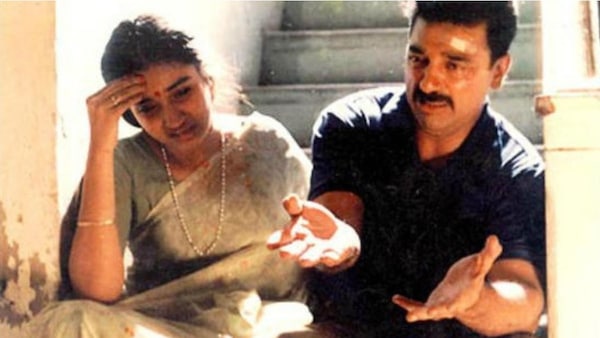
Haasan gives his heart and soul to the character. He effortlessly captures the pain, frustration and despair of a man who lost all that he held close to his heart. The scene where Krishna finally finds his daughter at the brothel is heartbreaking, and Haasan’s emotions in these scenes are subtle yet realistic. Apart from Haasan, the film features Sukanya, S. N. Lakshmi, Tulasi, Shobana, Dinesh, Poornam Viswanathan, Rajesh and Cochin Haneefa.
Interestingly, most of the characters in the film are named after rivers such as Krishna, Kaveri, Yamuna, Thamirabarani, and Narmada. In an interview with Film Companion South, the director of the film Santhana Bharathi said that Meenda Sargam was the first title Haasan had in his mind for the film. “ But it sounded like a very old title. Also the film’s characters were named after rivers…We wanted to keep a title related to rivers. So we ended up with Mahanadhi,” said Bharathi. The film also touches upon the Cauvery river dispute in a symbolic way.
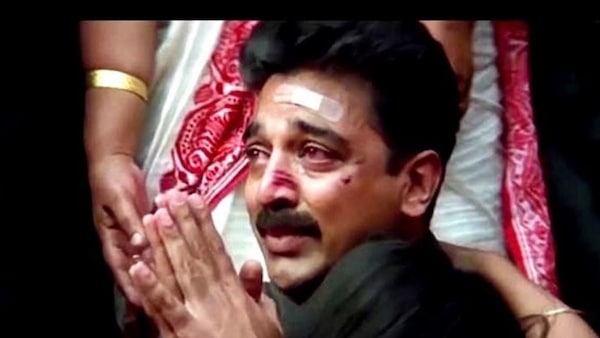
The film’s gripping screenplay compels the viewers to empathise with Krishna and his family. Haasan, who has co-written the film, later said that he was inspired to write the story after he learned about a conspiracy to kidnap his daughter for ransom. The ‘Jesus Christ’ shot, which is the interval scene wherein Krishna stands among a group of prison inmates who view him as their ‘saviour’, is iconic. Likewise, the climax is something we would least expect.
Though the film was praised by critics, it was met with an average reception at the box office. Mahanadhi went on to bag two National Film Awards—Best Feature Film in Tamil and Best Audiography. Even after 28 years, it remains one of the best works of Kamal Haasan.
You can watch Mahanadhi here.

